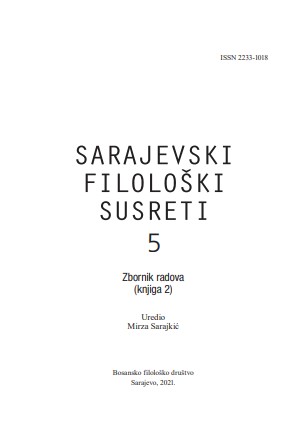Opravdanost Frojdove psihoanalitičke paradigme u tumačenju romana Nečista krv Borisava Stankovića
The Validity of Freud‘s Psychoanalytic Paradigm in the Interpretation of the Novel Nečista Krv of Borisav Stankovic
Author(s): Jovana M. KopanjaSubject(s): Studies of Literature, Serbian Literature, Psychoanalysis, Phenomenology, Sociology of Literature
Published by: Bosansko filološko društvo
Keywords: Borisav Stanković; Nečista krv; Freud; psychoanalysis; eroticism;
Summary/Abstract: Although psychoanalytic learning as a scientific paradigm has become increasingly undervalued in recent decades, it still has a very important place in the science of literature. Borisav Stankovic‘s most famous novel Nečista krv is based on Zola‘s theory of family degeneration and the naturalistic account of the demise of the Hadži-Trifun lineage, as well as Freud‘s teaching on the conception of personality, hence the inevitable starting point for the analysis of this work. The paper will not question whether Stanković read Freud, but will highlight the benefits of Freud‘s psychoanalytic paradigm in interpreting the novel over other approaches to interpretation and look at those authors who based the analysis of Nečista krv on psychoanalytic learning. The aim of the work is to isolate parts of the novel that will be interpreted in the key of psychoanalytic phenomena such as: the problem of the boundary between erotic and pornographic, the struggle of eros and tanatos, the phenomenon of incest, which is brought about in connection with the custom of “snobbery” in the Pčina region of Serbia, as well as autoeroticism, the most complex erotic phenomenon in the novel.
Journal: Sarajevski filološki susreti: zbornik radova
- Issue Year: 5/2020
- Issue No: 2
- Page Range: 80-93
- Page Count: 14
- Language: Serbian

